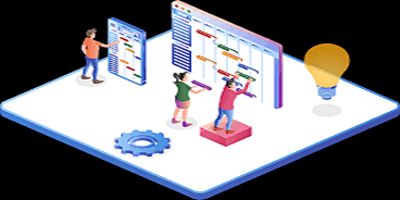Concept of Problem-Solving
Problem-solving is a cognitive process that involves discovering, analyzing, and solving problems. It’s a critical skill that individuals use to overcome challenges, achieve goals, and make decisions. The concept of problem-solving can be applied to various aspects of life. Including personal, professional, and academic domains.
Key elements of the concept of problem-solving include:
Identification of a Problem:
- The process begins with recognizing that a problem exists. This may involve understanding a discrepancy between the current state and the desired state.
Definition and Analysis of the Problem:
- Once a problem is identified, it needs to be clearly defined and understood. This may involve breaking down the problem into smaller components, analyzing its causes and effects, and gathering relevant information.
Goal Setting:
- Establishing specific, measurable, achievable, relevant, and time-bound (SMART) goals is crucial. These goals guide the problem-solving process and help in measuring success.
Generation of Possible Solutions:
- Brainstorming and generating a variety of potential solutions to the problem is a key step. Creativity and critical thinking play important roles in this phase.
Evaluation of Solutions:
- Assessing the pros and cons of each potential solution is essential. Consideration of feasibility, effectiveness, and potential consequences helps in selecting the most appropriate solution.
Decision-Making:
- Based on the evaluation, a decision is made regarding the best course of action. This may involve choosing one solution or a combination of solutions.
Implementation of the Chosen Solution:
- Putting the chosen solution into action. This may require planning, coordination, and execution.
Monitoring and Evaluation:
- After implementation, it’s important to assess the effectiveness of the solution. Monitoring allows for adjustments. and improvements to be made if necessary.
Reflection and Learning:
- Reflecting on the problem-solving process provides insights into what worked well and what could be improved. This learning contributes to an individual’s problem-solving skills for future challenges.
Summary
Problem-solving is not a linear process, and individuals may revisit certain steps as needed. It involves a combination of analytical thinking, creativity, adaptability, and effective decision-making. Developing strong problem-solving skills is beneficial in various aspects of life, including personal development, academic success, and professional advancement.
